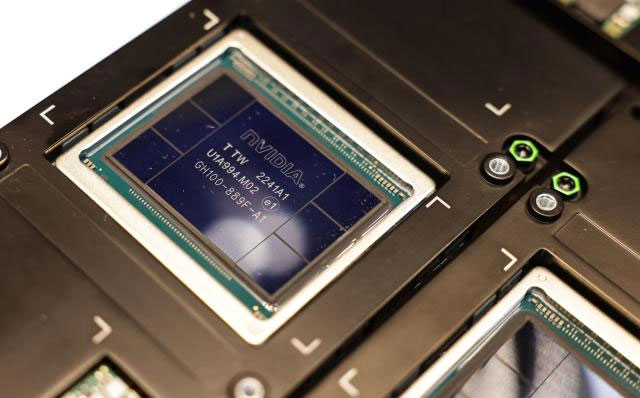The US is slowing down the export of AI chips to the Middle East by Nvidia and AMD
According to several anonymous sources, it is unclear how long the review will last, nor is there a specific definition of what constitutes a large shipment. Officials are particularly focused on bulk sales, the person said, as countries including the United Arab Emirates and Saudi Arabia seek to import large quantities of used chips. used in AI data centers.

AI accelerators - a category pioneered by Nvidia - help data centers process the amount of information needed to develop Artificial Intelligence (AI) chatbots and other tools. They have become essential devices for companies and governments looking to build AI infrastructure.
In October, the Commerce Department added much of the Middle East to chip export restrictions that initially focused on China and some other foreign competitors. That means companies need special licenses from the U.S. government to ship advanced semiconductor and chipmaking tools to countries like Saudi Arabia and the UAE.
Several people said U.S. officials have delayed or failed to respond to license applications filed under that regulation in the past few weeks. According to one source, that includes sales efforts to customers in the UAE, Saudi Arabia and Qatar. In addition to Nvidia and AMD, Intel Corp. and startup Cerebras Systems Inc. also produces accelerator chips. Four companies declined to comment on this issue.
The goal, according to the people, is to give Washington time to develop a comprehensive strategy on how to deploy advanced chips abroad. That includes negotiating who will manage and secure the facilities used to train AI models, some said.
Nvidia shares fell to an intraday low after Bloomberg reported on the license review. At the close in New York, shares fell 3.8% to $1,105. Meanwhile, AMD pared earlier gains, rising less than 1% to $166.75.
In a statement, the Commerce Department said its highest priority is 'protecting national security'. A representative from the Ministry said: 'For the most advanced technologies, we conduct extensive due diligence through an interdisciplinary process, thoroughly reviewing license applications from applicants intending to operate them. transfer these advanced technologies around the world'. 'As always, we remain committed to working with partners in the Middle East and around the world to protect our technology ecosystem.'
Thea Kendler, head of the Commerce Department's export administration, visited the UAE, Saudi Arabia, Qatar and Kuwait earlier this month as part of ongoing discussions. In the UAE, she pointed out that there has been progress in cooperation on semiconductor export controls.
Part of the concern is that Chinese companies, which are largely blocked from advanced American technology, could be exposed to those chips through data centers in the Middle East. The Biden administration is waging a broader campaign to prevent advanced semiconductor and manufacturing equipment from falling into the hands of China, amid concerns that the technology will be used to bolster the country's military .
The UAE and Saudi Arabia are racing for regional leadership in AI, aiming to reduce their economies' dependence on oil. Both countries see the United States as a key partner in that effort, and top officials and companies have said they will comply with U.S. demands to decouple Chinese supply chains — or divest completely from Chinese technology.
Meanwhile, Saudi Arabia has just reached an agreement with China's Lenovo Group, which involves the computer manufacturer building a research and development center in Riyadh.
The ability to secure export licenses is a key part of negotiations surrounding Microsoft Corporation's $1.5 billion investment in Abu Dhabi AI company G42 - a partnership that follows months of negotiations. negotiate with US officials.
You should read it
- ★ 9 models of Sony Vaio using Nvidia chips
- ★ Dell launched two workstations using Ivy Bridge chips
- ★ Nvidia won the race to design chips for notebooks
- ★ Huawei recruited Nvidia employees, preparing to play with the company in GPU production?
- ★ Intel shook hands with AMD to release the 8th generation chip competing with Nvidia